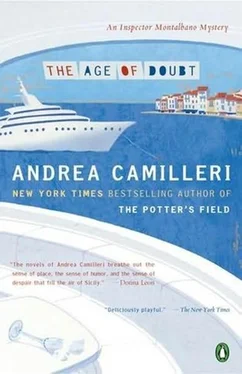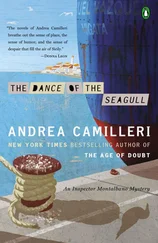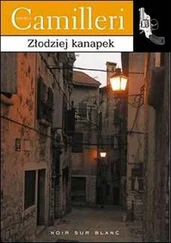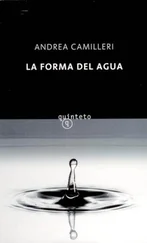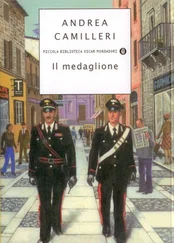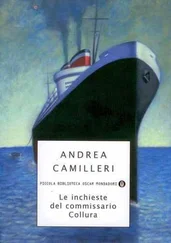He shot to his feet, dashed inside, and went up to the bookcase. It had to be a book he had read together with Livia.
Almost independently of his brain, his right arm reached up, and his right hand picked out a book with a light-blue cover: Les Pitard , by Georges Simenon. A masterpiece. He had liked the book very, very much, so much that he’d read it two more times on his own. He opened it.
There he was, the novel’s protagonist, Captain Émile Lannec of Rouen, the owner and captain of a very old steamboat called the Thunderbolt .
He leafed through the book, which now started coming back to him. It told a marvelous story. Unfortunately, however, it had nothing to do with the case currently on his hands.
Couldn’t it be just a coincidence? That a murder victim happened to have the exact same name as a Simenon character? Not really. What would be the chances of that? One in a billion?
Or could it have been a joke on the part of the Frenchman, to take a name that, in any case, no one would ever recognize?
All the same, there was something worth trying: to check the passport’s authenticity. But how could it be that of all those people who stamped and pasted visas on it, nobody noticed that it was a counterfeit document? Well, actually, it was possible.
He went and sat back down on the veranda, and poured himself another glass of whisky.
But then, was it really so important to know whether the passport was authentic or not?
Was it really so critical to the investigation to know whether the victim was named Lannec, Parbon, or Lapointe?
No, he was wrong here. It was important. Very important. Because it was possible that the inspector’s colleagues in France could find out whose passport had been counterfeited, and then, through this person, trace the process back to Lannec’s real identity. And it was possible it would lead to someone well known to the French authorities, and that…
At this point he could no longer think. He felt a little drunk. Actually, he didn’t feel drunk, he was, in fact, drunk. He stood up, head spinning slightly, went back inside, closed the French door behind him, and lay down in bed, falling asleep immediately.
***
At a certain point, around dawn, he had a dream.
He was on the terrace of an unfamiliar house, at night, with a pair of binoculars in his hands, looking through them at an illuminated window that he knew was the window to Mimì Augello’s bedroom. He’d just brought the image into focus when a black shadow descended, completely covering the light of the window.
What could it be? Looking harder, he realized it was a large bird, a seagull, perched on a television antenna.
As he began to lose hope, the bird flew away, and the window suddenly appeared before him. Through it he couldn’t actually see the bed, but projected on the bedroom wall were two shadows, one male, one female, and they were making love… Mimì and Laura!
He woke up with a start.
Curiously, though, instead of getting upset over the two shadows making love, he felt perplexed over a detail of the dream: the bird, which, in landing on the antenna, had prevented him from seeing past it.
What did it mean? Because, if the bird was there, it must definitely mean something.
He got up, opened the French door, and went out on the veranda.
The dawning day came armed with the best of intentions. There wasn’t a cloud in the sky, not a trace of wind. The boat of his fisherman friend was already out on the water, and for a moment a trawler returning to port covered it up, making it disappear. Then, once the trawler passed, the little boat reappeared.
At that moment, in an instant, Montalbano understood the meaning of his dream.
He saw himself standing again in Lannec’s hotel room, binoculars in hand, looking in the direction of the port.
What had he seen?
The hatch on the Vanna ’s deck, leading below decks. But if the Vanna hadn’t been there, what would he have seen? He would have seen the cruiser, the Ace of Hearts .
The day that Lannec arrived in Vigàta, the Vanna wasn’t there yet, in the port.
Wasn’t it possible that Lannec had come to meet someone from the Ace of Hearts ? And that he had received, through the binoculars-with no need for phone calls, which are always dangerous-instructions as to the hour and place of the meeting?
As soon as it was six-thirty, Montalbano looked up the telephone number of the Bellavista Hotel and called.
“Is this Signor Scimè?”
“Yes. Who is this?”
“Montalbano here.”
“Good morning, Inspector. What can I do for you?”
“Sorry to disturb you, but the other day I forgot to ask you something.”
“I’m at your service.”
“When Mr. Lannec arrived at the hotel, did he ask you anything in particular that you can recall?”
The porter didn’t answer right away.
“Do you not remember, or-”
“Well, Inspector, some time has gone by and… Wait, yes, that’s it! He asked me for a room with a view of the sea…”
“Were those his exact words?”
“Well, now that you mention it… He asked me for a room with a view of the port.”
Bingo!
So, to sum up. They let Lannec know that when he gets to Vigàta, he’s supposed to go to the Bellavista Hotel equipped with a powerful set of binoculars and have them give him a room with a view of the port. Knowing more or less the Frenchman’s hour of arrival, they put someone on guard on the Ace of Hearts , also equipped with binoculars or something similar.
As soon as Lannec appears on the balcony of his hotel room, the people on the Ace of Hearts make contact with him.
How? With binoculars as powerful as the Frenchman’s, they could have written their instructions from the boat on a small blackboard.
They give him an appointment to meet them in front of the Pesce d’Oro restaurant. Lannec has a taxi take him around town a few times to cover his tracks and then arrives at the appointed place. Then he starts walking, taking the first right.
At this point in his reconstruction, the inspector became convinced that just around the corner there was a car waiting to take Lannec to the cruiser at the port.
But why go there by car and not on foot, since it’s only a stone’s throw away?
Probably because he had to pass by the Customs Police at the north entrance to the port, and in a car he was less likely to be noticed. He could, for example, partially hide his face, pretending to be asleep or reading a newspaper…
So the Frenchman goes aboard the Ace of Hearts . They talk about whatever it is they need to talk about, and they probably fail to come to an agreement. And so they decide to silence him.
Or else Lannec’s fate had already been sealed before he even came to Vigàta. His journey only served to lead him to his killers. And so they invite him to lunch and poison him.
But why use rat poison?
Shooting him, of course, was out of the question. The noise might attract someone’s attention-say, a fisherman or sailor who happened to be passing along the quay at that moment.
Would it have made more sense to knife him?
No, using a knife would have left bloodstains everywhere, which would have been easily found in any eventual investigation.
What about strangling him? A colossus like the guy the inspector had seen on the Ace of Hearts could have done it with one hand.
This business of the poison was rather strange. It needed further reflection.
Whatever the case, once the guy’s dead, they strip him naked, smash his face in, and deposit him somewhere. On the morning of the storm, they decide it’s the right time to get rid of the corpse.
Читать дальше
